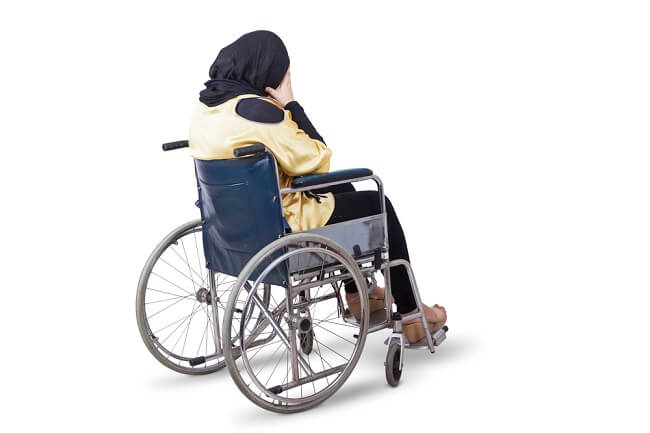Post power syndrome or post-power syndrome is a condition when a person lives in the shadow of the power he once had and has not been able to accept the loss of that power. Post power syndrome This is often experienced by people who have just entered retirement.
Not a few people who make work as a form of self-actualization and life goals. Upon entering retirement, these people lose not only a job they love, but also any form of self-esteem they received while working, such as praise, respect, and a sense of need by others.

This big change can lead to a feeling that they are no longer useful, even have no purpose in life anymore. This condition is called post power syndrome.
If one of your family or friends experiences post power syndrome, Your help and support really needs him to get through this time.
Because, if allowed to drag on, post power syndrome This can cause sufferers to experience various health problems, both physically and mentally.
Symptom Post Power Syndrome
There are several symptoms that can be a sign that someone is experiencing post power syndrome. Here are some of them:
- Lack of enthusiasm in living life after retirement
- Easily offended
- Withdraw from society
- Do not want to lose
- Don't like to hear other people's opinions
- Likes to criticize or criticize the opinions of others
- Likes to talk about his past greatness or power
How to Accompany People with Post Power Syndrome
People who experience post power syndrome usually will show a variety of negative emotions. However, remember not to shy away or walk away from it. Help him adapt and accept his condition in these ways:
1. Give me a new job
One of the reasons a person can experience post power syndrome is due to the loss of routines or habits that are done every day. Therefore, giving the sufferer post power syndrome a new busy life can be a way to take his mind off the shadows of his past work.
The activities that you can offer can vary, such as sports to just picking up grandchildren at school every afternoon. You can also ask him what he wants to do in his retirement.
2. Maintain good communication
As previously mentioned, people who are experiencing post power syndrome should not be left alone, because this can cause symptoms post power syndrome-it got worse. Therefore, as much as possible you should continue to maintain communication with him.
If you cannot meet in person every day, maintaining communication can also be done via telephone or email video calls. That way, he won't feel alone when facing the times post power syndrome-his.
3. Ask a third person for help
If you find it difficult to deal with people who are experiencing post power syndrome, You can ask other people to help you accompany them.
Doing the ways above is expected to help him get through the period post power syndrome-her better. That way, he can live his retirement in a healthy and happy way.
In addition, make sure the patient post power syndrome live a healthy lifestyle. You can invite him to get used to eating healthy foods, remind him to get enough sleep and not stay up late, and invite him to exercise together. This will have a good influence on his mental health.
However, if your methods don't work, or maybe he looks even more moody and expresses feelings that he's useless or no longer has a purpose in life, try to consult a psychologist.
A psychologist can help you find the best way to support the sufferer post power syndrome who may have gone into depression. If necessary, the psychologist can also refer to a psychiatrist so that this condition can be treated with medication.









